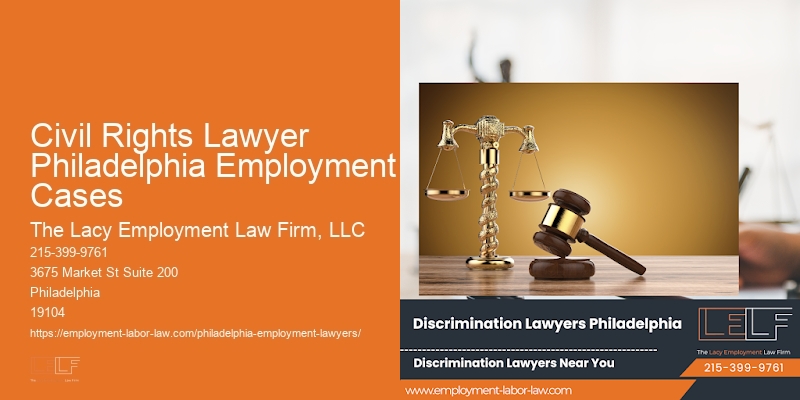

|
Entity Name |
Description |
Source |
|
Martindale-Hubbell |
An information services company to the legal profession in United States. |
|
|
Philadelphia |
The largest city in the Commonwealth of Pennsylvania in the United States. |
|
|
Pennsylvania |
A state in the Mid-Atlantic, Northeastern, and Appalachian regions of the United States. |
|
|
Wrongful Dismissal |
An unfair dismissal in terms of the employment contract. |
|
|
Employment Discrimination |
Discrimination in employment context based on certain characteristics. |
|
|
Sexual Harassment |
Bullying or coercing of an unwanted sexual nature, or inappropriate promise of rewards in exchange for sexual favors. |
|
|
Shareholder Oppression |
A term used to describe the tools that business law provides to prevent majority shareholders from denying minority shareholders their right of influence over corporate affairs. |
|
|
Whistleblower |
Someone who exposes secretive information or activity that is deemed illegal, unethical, or not correct within a private or public organization. |
|
|
Workplace Bullying |
Repeated, unwelcome behavior that harms or intimidates an employee, often causing them emotional or physical stress. |
|
|
Worker's Compensation |
A form of insurance providing wage replacement and medical benefits to workers injured in the course of employment. |
|
|
Disability |
Any condition of the body or mind that makes it more difficult for the person with the condition to do certain activities and interact with the world around them. |
|
|
Attorneys in the United States |
Individual who has been qualified by a state or Federal court to provide legal services, including appearing in court. |
|
|
Attorney at Law |
A professional who is authorized to practice law; conduct lawsuits or give legal advice. |
|
|
Boutique Law Firm |
A collection of lawyers who specialize in a niche area of law. |
|
|
Non-compete Clause |
A clause under which one party agrees not to compete with another. In a contract. |
|
|
United States |
A country primarily located in North America. |
|
|
Supreme Court of the United States |
The highest federal court in the United States. |
|
|
Lawyer |
A professional who is qualified to offer advice about the law or represent someone in legal matters. |
|
|
Class Action |
A type of lawsuit where one of the parties is a group of people who are represented collectively by a member of that group. |
|
|
Temple University Beasley School of Law |
A professional graduate school of Temple University, located in Philadelphia, Pennsylvania. |
|
|
Securities Fraud |
Deceptive practices in the stock or commodities markets. |
|
|
Widener University Commonwealth Law School |
Widener Law Commonwealth, located in Harrisburg, Pennsylvania, offers legal education and has Pennsylvania's highest overall bar pass rate. |
|
|
Unemployment benefits |
Payments made by authorized bodies to unemployed persons. |
|
|
Employee Retirement Income Security Act of 1974 |
A federal United States tax and labor law that establishes minimum standards for pension plans in private industry. |
|
|
United States Court of Appeals for the Federal Circuit |
A federal appellate court with jurisdiction generally given in areas involving international trade, government contracts, patents, trademarks, certain money claims against the United States government, federal personnel, and veterans' benefits. |
|
|
Law of the United States |
The law of the United States comprises many levels of codified and uncodified forms of law. |
|
|
Equal Employment Opportunity Commission |
The agency of the United States Government that enforces the federal employment discrimination laws. |
|
|
Employee Benefits |
Various types of non-wage compensation provided to employees in addition to their normal wages or salaries. |
|
|
Negligence |
A failure to exercise the care that a reasonably prudent person would exercise in like circumstances. |
|
|
Wrongful death claim |
A claim against a person who can be held liable for a death. |
|
|
Vehicle insurance |
Insurance for cars, trucks, motorcycles, and other road vehicles. |
|
|
Asset forfeiture |
A legal process in which law enforcement officers take assets from persons associated with a crime. |
|
|
Penn State Law |
The professional graduate law school of Pennsylvania State University. |
Philadelphia was founded in 1682 by William Penn, an English Quaker and advocate of religious freedom. The city served as the capital of the Pennsylvania Colony during the British colonial era and went on to play a historic and vital role as the central meeting place for the nation's founding fathers whose plans and actions in Philadelphia ultimately inspired the American Revolution and the nation's independence following the Revolutionary War. Philadelphia hosted the First Continental Congress in 1774, preserved the Liberty Bell, and hosted the Second Continental Congress during which the founders signed the Declaration of Independence, which historian Joseph Ellis has described as "the most potent and consequential words in American history". Once the Revolutionary War commenced, the Battle of Germantown and the siege of Fort Mifflin were fought within Philadelphia's city limits. The U.S. Constitution was later ratified in Philadelphia at the Philadelphia Convention of 1787. Philadelphia remained the nation's largest city until 1790, when it was surpassed by New York City, and it served as the nation's first capital from May 10, 1775, until December 12, 1776, and on four subsequent occasions during and following the American Revolution, including from 1790 to 1800 during the construction of the new national capital of Washington, D.C.
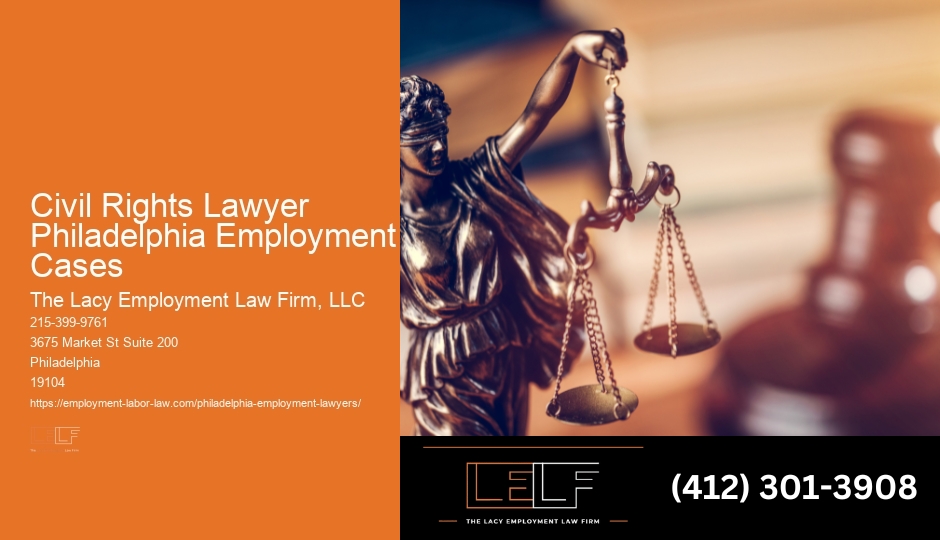
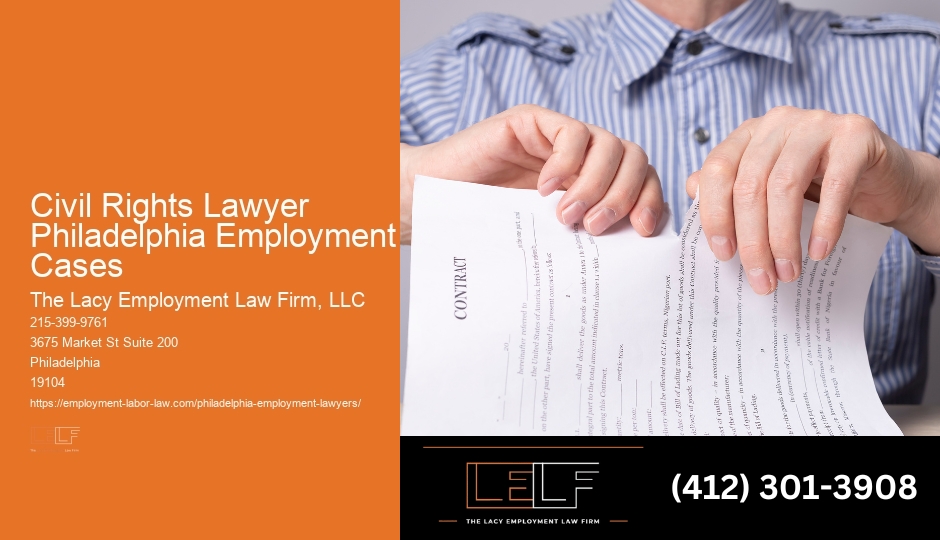
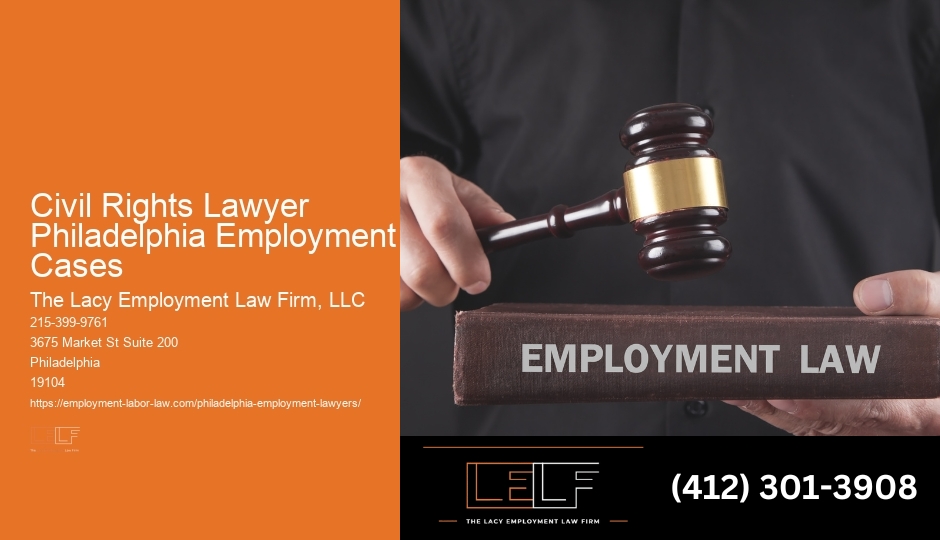
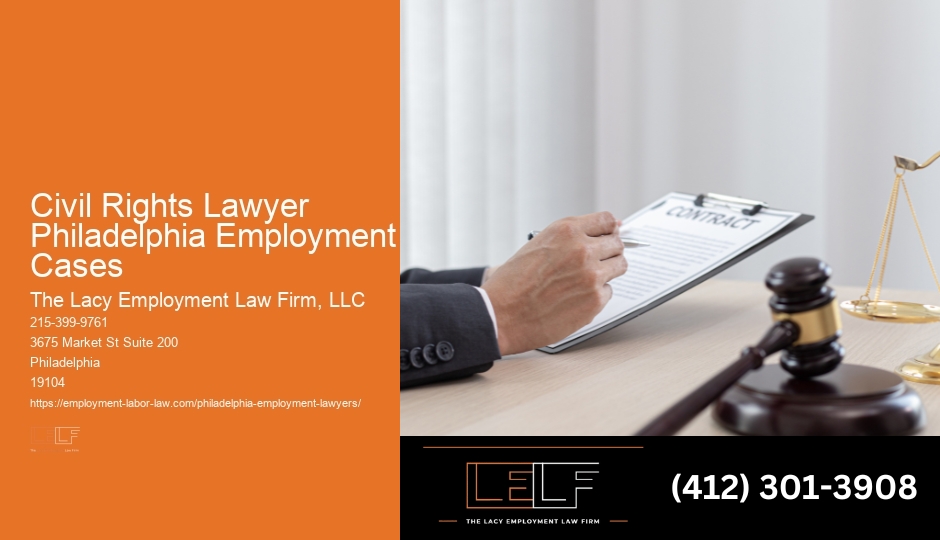
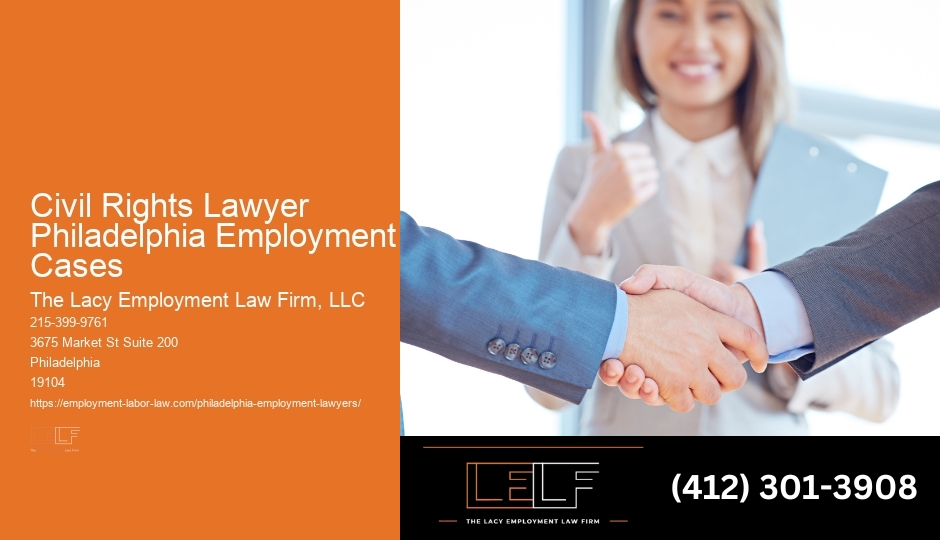
They're involved in community outreach and pro bono programs, offering free legal support to workers who can't afford representation. This commitment ensures vulnerable employees have access to justice, reinforcing the firm's dedication to workers' rights.
The firm joined forces with another law firm, tackling a challenging case of workplace discrimination. Together, they crafted a robust legal strategy, ultimately securing a significant victory for their client, showcasing their collaborative prowess.
The Lacy Employment Law Firm LLC provides comprehensive support for clients' mental and emotional well-being by offering counseling services, stress management resources, and regular updates to reduce anxiety during challenging legal battles.